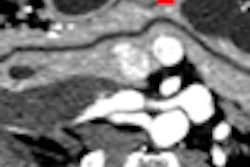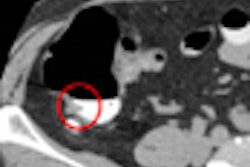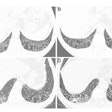Among patients with advanced colon cancer undergoing treatment, a family history of the disease is associated with significant reductions in both cancer recurrence and death, according to a study in the Journal of the American Medical Association (JAMA). The risk is further reduced if the patient has more than one first-degree relative affected by the disease.
The study, led by Dr. Jennifer Chan and colleagues of the Dana-Farber Cancer Institute in Boston, not only offers hope to patients with families affected by colorectal cancer, it could lead to new research about the genetic implications of the disease.
Several studies have shown an association between a positive family history of colorectal cancer and an individual's personal disease risk, and as a result, questions about family history are a standard part of assessing an individual's risk of dying from the disease.
"Approximately 16% to 20% of patients with colorectal cancer have a first-degree relative with colorectal cancer," Chan and colleagues wrote. "Beyond rare but highly penetrant hereditary colorectal cancer syndromes, numerous studies have demonstrated that a history of colorectal cancer in a first-degree relative increases the risk of developing the disease by approximately twofold. However, the influence of family history on cancer recurrence and survival among patients with established colon cancer remains uncertain" (JAMA, June 4, 2008, Vol. 299:21, pp. 2515-2523).
The prospective, observational study examined the association of colorectal cancer with recurrence and survival in 1,087 patients with stage III colon cancer who were receiving adjuvant chemotherapy. Patients provided information on family history of colorectal cancer at the beginning of the study and were followed up until March 2007 (median follow-up, 5.6 years) for cancer recurrence and death.
"In a subset of patients, we assessed microsatellite instability (MSI) and expression of the mismatch repair (MMR) proteins MLH1 and MSH2 in tumor specimens," Chan et al explained.
Participants were asked if a parent or sibling had colon or rectal cancer, including deceased relatives but excluding half-siblings, and if so, the age at first diagnosis. The researchers did not attempt to validate the patients' reports.
DNA was extracted from patients with available tumor specimens, and polymerase chain reaction analysis was conducted using a panel of 10 DNA mononucleotide and dinucleotide microsatellite markers.
Among the participants, 195 of 1,087 (17.9%) reported a family history of colorectal cancer in one or more relatives. The researchers found that family history of colorectal cancer was associated with a significant reduction in the risk of both cancer recurrence and death.
Compared to patients without a family history of colorectal cancer, those with a family history had a 28% lower risk of cancer recurrence or death, which occurred in 57 of 195 patients (29%) with a family history of colorectal cancer versus 343 of 892 patients (38%) without a family history of colorectal cancer.
Assessing cancer recurrence risk alone, patients with a family history of colorectal cancer had a 26% lower risk compared to patients without a family history. Colorectal cancer recurred in 27% of patients with a family history compared to 35% without a family history. Patients with a family history also had a 25% reduced risk of death compared to those without a family history.
In addition, the benefit associated with having a family history of colorectal cancer appeared to grow stronger as the number of affected family members increased, though most patients reported only one affected relative.
"Compared with participants without a family history of colorectal cancer, those with one affected relative had a multivariate hazard ratio [HR] of 0.77 (95% confidence index [CI], 0.57-1.04) for cancer recurrence or death," the authors wrote. "For participants with two or more affected relatives, we observed a greater reduction in risk (multivariate HR, 0.49; 95% CI, 0.23-1.04; p for trend with increasing number of affected relatives = 0.01)."
For patients with one affected relative, cancer recurrence or death occurred in 50 of 165 patients (30%; 95% CI, 24%-38%). Cancer recurrence or death occurred in seven of 30 patients (23%; 95% CI, 12%-41%) with two or more affected relatives and in 343 of 892 patients (38%; 95% CI, 35%-42%) without a family history of colorectal cancer. And compared to participants without a family history of colorectal cancer, participants with two or more affected relatives had a 51% lower risk of cancer recurrence or death, Chan et al reported.
Only one potentially prognostic patient or tumor characteristic differed significantly between those with a family history and those without: Patients with a family history were less likely to have presented with clinical bowel obstruction (p = 0.02), the researchers wrote.
They examined whether the effect of family history might have varied according to the age of the first-degree relative's diagnosis. However, the hazard ratio for relatives diagnosed under 50 years of age -- 0.68 (95% CI, 0.36-1.29) -- was similar to the HR for those diagnosed at 50 years and older -- 0.73 (95% CI, 0.53-1.00), Chan et al noted. Recurrence or death occurred in 28% of patients with a family history diagnosed under 50 years of age versus 30% of those diagnosed at 50 years.
Also considered was the possibility that patients with a family history of colorectal cancer might have a different prognosis related to earlier detection of their cancers. But an analysis excluding patients with early-stage disease (T1 and T2) tumors did not significantly alter the results. Among patients with stage T3 and T4 tumors, cancer recurrence or death occurred in 30% compared to 41% of patients without a family history, Chan et al reported. A similar reanalysis of patients with fewer than four positive lymph nodes did not significantly alter the results.
"Beyond rare, well-characterized hereditary colorectal cancer syndromes, our data support the hypothesis that a relatively common though less penetrant genetic predisposition may not only influence colorectal cancer risk but also patient survival. This finding may reflect a distinct underlying molecular and pathogenic mechanism in cancers that develop in the setting of a common (i.e., sporadic) family history," the researchers wrote. "Further studies are needed to more fully elucidate potential mechanisms by which a common family history may influence the outcome for patients with colorectal cancer."
In an editorial accompanying the study, Dr. Boris Pasche, Ph.D., from Northwestern University Feinberg School of Medicine in Chicago said that genetic studies within families could gain new importance in colorectal cancer research.
"If these intriguing findings are validated in other studies, family history may well become a new prognostic factor in colorectal cancer," Pasche wrote. "Should this be the case, genome-wide association studies and tumor gene expression profiling studies will be warranted to identify germline and tumor-specific genetic features associated with a family history of colorectal cancer and favorable outcome following adjuvant chemotherapy" (JAMA, June 4, 2008, Vol. 299:21, pp. 2564-2565).
The study "suggests that family history of colorectal cancer will lead to the identification of novel genetic features predictive of response to chemotherapy," Pasche continued. "Familial colorectal cancer may therefore confirm its role as a genetics treasure trove for medical discovery."
By Eric Barnes
AuntMinnie.com staff writer
June 9, 2008
Related Reading
Highest colonoscopy screening rates are in low-risk patients, May 29, 2008
Some advanced cancer patients living longer: study, April 8, 2008
American Cancer Society recognizes virtual colonoscopy screening benefit, March 5, 2008
U.S. colon cancer risk traced to common ancestor, January 3, 2008
Positive trial results boost VC's prospects for broader screening role, October 16, 2007
Copyright © 2008 AuntMinnie.com




















